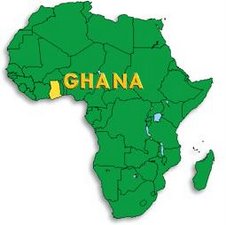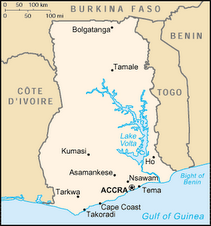Top: The privilege of learning from bright, young doctors. Above: Local smocks given as gifts.
One receives much more than one gives in performing surgery in northern Ghana. Saving one life a week is more satisfaction than any other I can imagine. Sometimes saving patients lives is possible because they are young and their sickness is the result of trauma, infection, aspirating or ingesting coins, groundnuts or maize. A health worker has the feeling of contributing, of being worthwhile and the gratitude from the patients, staff and population is heartwarming.
A few days ago a woman thanked me for saving her life four years ago. Her chest was mostly scarred from the skin grafts which were used to cover her open wound after a deep chest abscess from an infected molar tooth. There are many examples of patients’ appreciation: an illiterate father returning with ten yams, an old, poor farmer giving me a guinea fowl, the boy who stopped his bicycle to say hi, the young woman with a baby on her back who kept smiling at me in the taxi and whom I later learned was the mother of the now healthy child we had saved the year before, the girl with the reconstructed nose who stuck her head in the door to say hi. These expressions of thanks make our day.
Working here has made me appreciate the goodness in all people. Generous donations given to me with no strings attached are truly appreciated and put to good use. Finally, there is the joy of learning that human nature is the same regardless of religion, dress or language. Sorrow over a loved one’s illness or death is universal. Interesting layovers over the years in Lisbon, Istanbul, Frankfurt and Manchester when going home for a family visit would have been compensation enough. I never dreamed of the many rewards which I do not earn or deserve.






